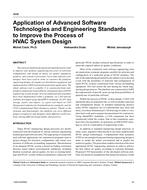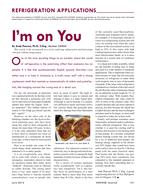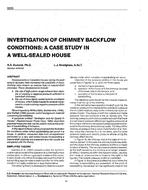Forced air distribution systems in residential buildings are often located outside the conditioned space, for example, in attics, crawl spaces, garages, and basements. Leaks from the ducts to these unconditioned spaces or outside can change flows through the registers and change the ventilation rates of the conditioned spaces. In this study, duct leakage flows were measured in several low-rise apartment buildings. The leakage flow measurements and other data about the apartments were used to develop a prototype apartment building. The multizone airflow model COMIS was then used on this prototype building to determine internal flows within the building, airflows through the building envelope, and the impacts of the duct leakage on the ventilation rates. The effects of sealing the duct leaks were also examined in order to determine changes in infiltration rates resulting from duct retrofits. The simulation results showed that for the prototype tested here, the excess return leakage tended to decrease envelope infiltration flows by about 20%, but the total infiltration load, including return duct leaks, more than doubled during system operation.
Units: Dual
Citation: Symposium, ASHRAE Transactions, vol. 105, pt. 1
Product Details
- Published:
- 1999
- Number of Pages:
- 8
- File Size:
- 1 file , 160 KB
- Product Code(s):
- D-7608


